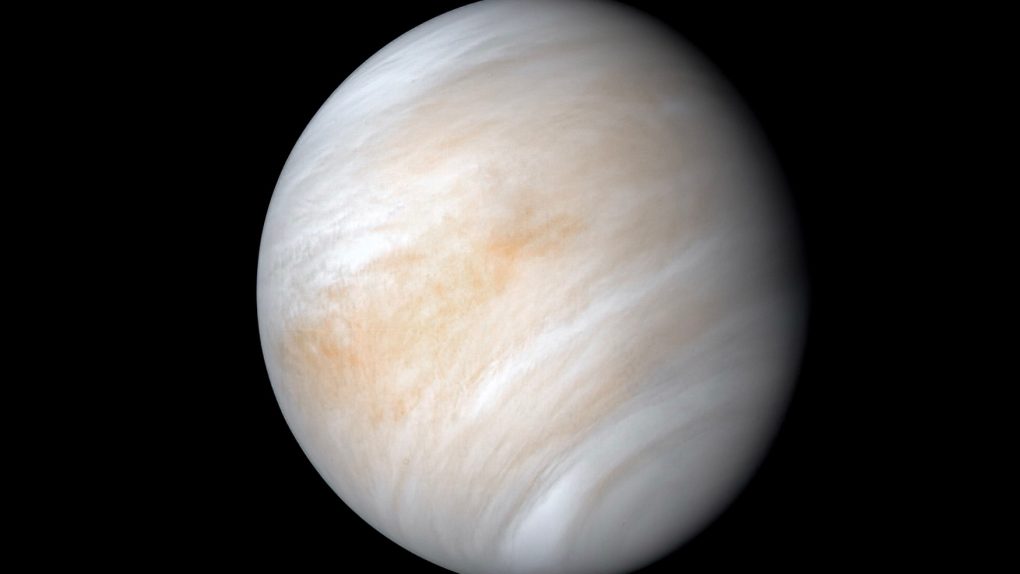- Scientists have detected higher-than-expected levels of a chemical in Venus’s atmosphere that may indicate the presence of life.
- The chemical can be produced by microbes, but can also be created artificially or within gas giant planets like Jupiter.
- Life on the surface of Venus is highly unlikely due to its incredibly hostile climate.
In the ongoing search for life outside of Earth, most of the focus has been on planets like Mars and even the frosty ocean Moons of other planets like Enceladus and Europa. Now, a new discovery is offering us an unexpected surprise in the form of what might possibly be evidence of life in some form on Venus.
But how could that be? Venus is ridiculously hot. Its surface is a boiling-hot 900-or-so degrees Fahrenheit, which should be way too warm for life as we know it to exist. As SYFY Wire explains, the discovery of these fleeting wisps of “life” comes in the form of a chemical called phosphine. The research was published in the journal Nature.
Phosphine is a byproduct of biological processes on the microscopic level. Tiny microbes can produce phosphine and, if the quantities are large enough, it could be detected in the atmosphere of Venus. Well, scientists have detected exactly that, and the concentration of the chemical is much higher than one would anticipate for a planet with no life.
Phosphine can be produced artificially — humans do it, for example, for use in the semiconductor industry — and other planets like Jupiter are known to have it in their atmospheres. In the case of Jupiter, the planet’s incredibly hot interior is thought to be responsible, but its existence in high concentrations in Venus’s atmosphere is unexplainable… unless we consider the possibility of microbial life on the planet.
The chemical is considered a “biomarker,” or a sign that we might choose to look for if we wanted to find life on other planets. However, Venus seems incredibly unlikely to be a host for life. In addition to its high temperature, the planet’s atmosphere is so thick that it would crush a human (or pretty much any other earthly creature) standing on its surface.
Phosphine in the atmosphere of Venus is even more strange when you consider where it was detected. The researchers found it at altitudes of over 30 miles above the surface. At that altitude, it should break down quickly, meaning that if there were a sudden burst of phosphine production on Venus in its distant history, it would have dissipated long before now. So, there’s something on Venus that is reliably generating it.
The researchers don’t immediately jump to the claim that life exists on Venus because, well, we obviously don’t know. It’s possible, even if the possibility is incredibly slim, but at the moment the consensus seems to be that there is some other way in which the planet is producing the chemical that we have yet to identify.








